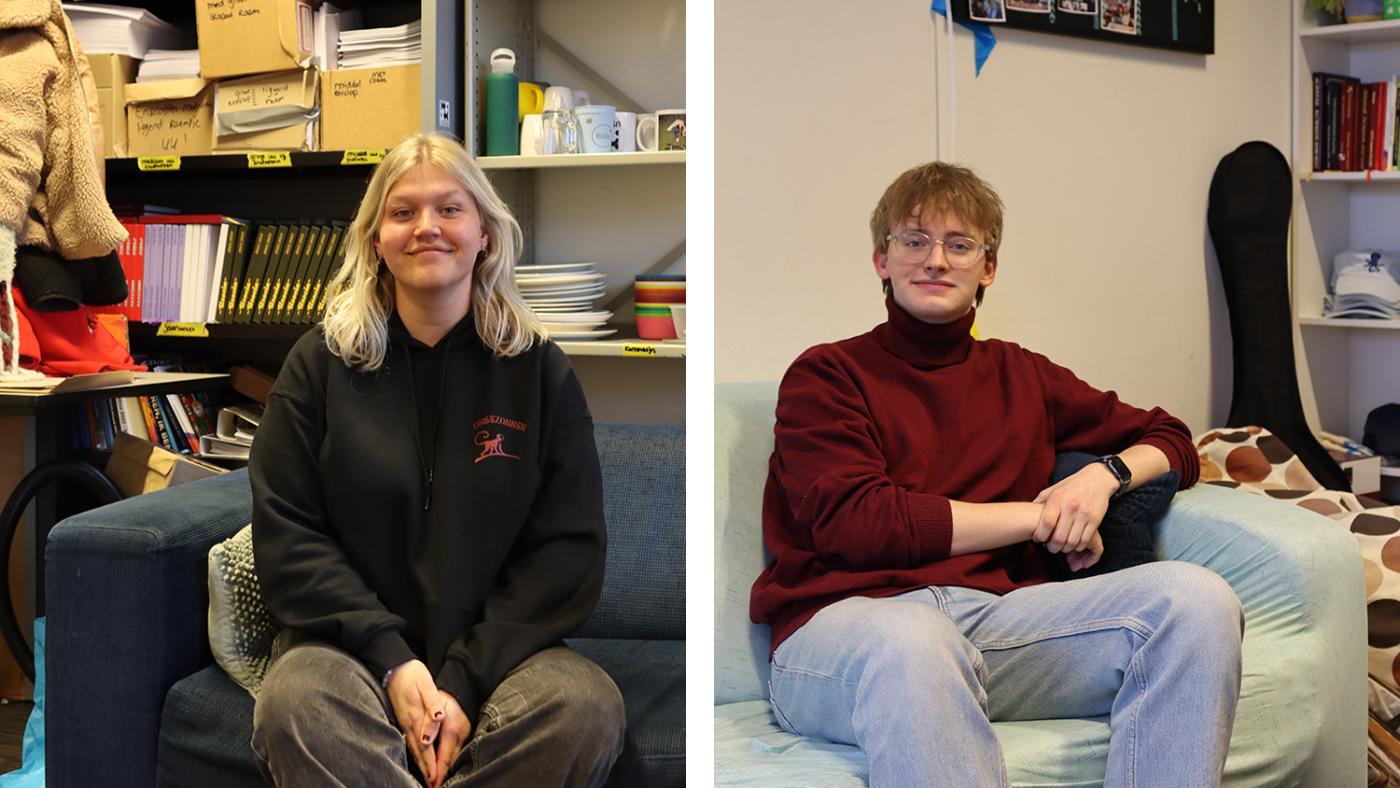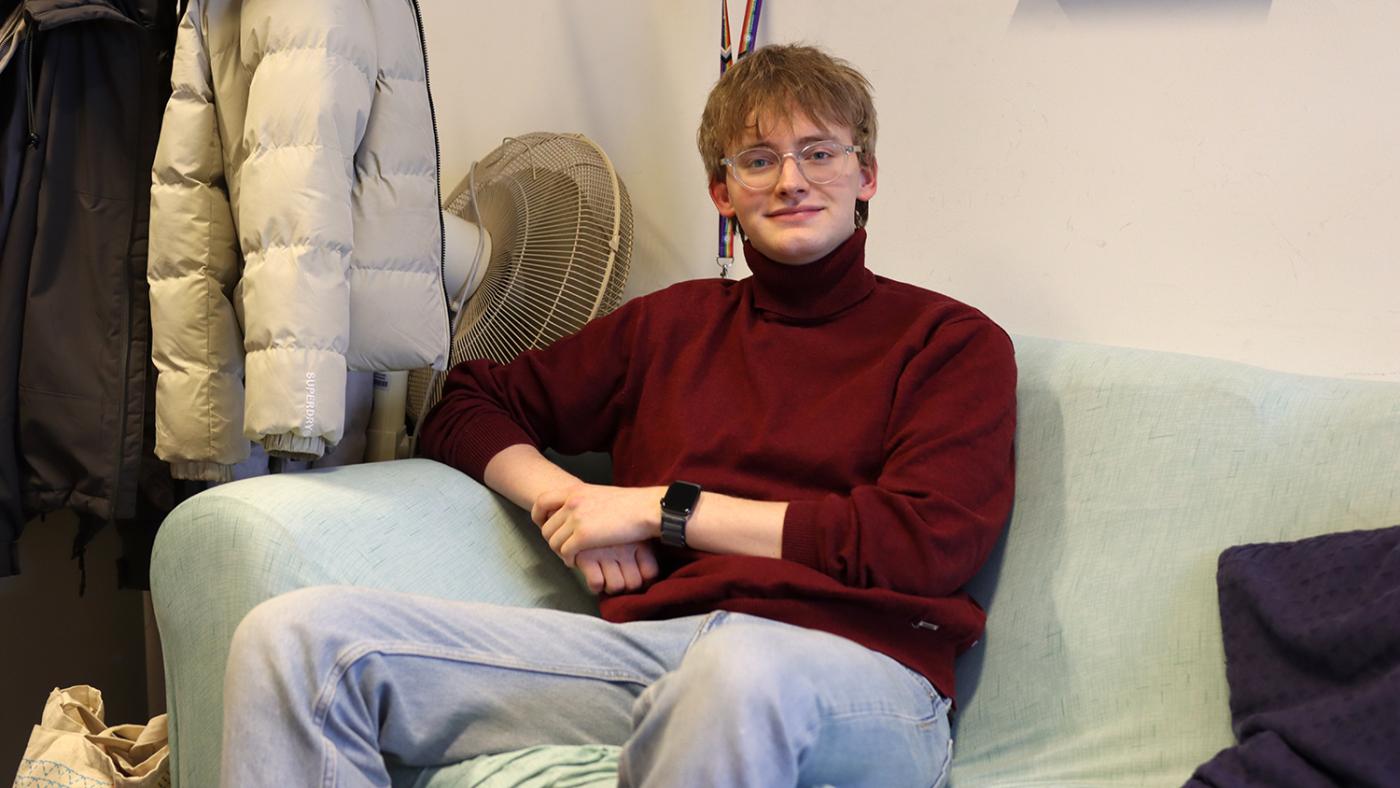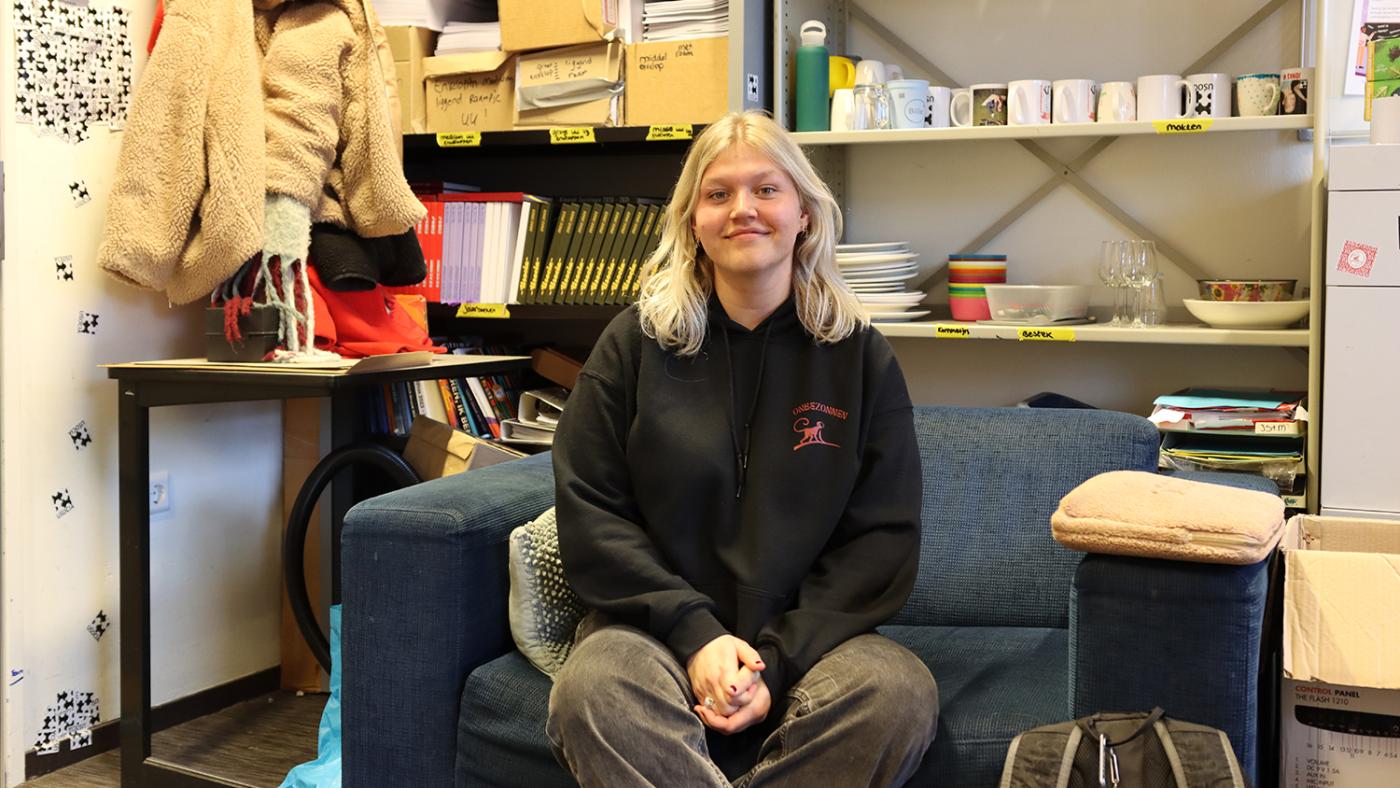Combating work pressure
Student administrators at Social Sciences learn to say ‘no’ more often

‘We don't feel as stressed out as other boards anymore. It is a huge improvement’, says Mark Bergmeijer, chair at Versatile, the Interdisciplinary Social Science study association. He describes his current workload as “healthy pressure”.
Versatile's 2023 board wrote an action plan in collaboration with the study programme to reduce the workloads of the students who join the study association board. They took the first steps in this direction, and the following boards moved things ahead.
All members of the board were obliged to attend the association's activities, but the obligation has since been lifted. Now, the board members can agree amongst themselves who will be present at which activity. ‘The rest can then decide if they want to be there or not,’ says Mark. According to him, the students have been much less stressed out, thanks to this change.
In addition, they set up committees for the orientation week and to make posters, two tasks that used to fall on board members' shoulders. Mark hopes that Versatile can set an example for other associations.
Thanks to the new arrangements, the chair now only works 'a few more hours’ than the twenty he is supposed to work on paper. Students who held the same position before used to work overtime a lot more often. ‘One of the previous boards calculated that the chair was working 30 to 40 hours a week.’

Mark Bergmeijer, from the study association Versatile. Photo: DUB
Alarming research
Two years ago, students in the Social Sciences faculty council sounded the alarm about overworked student administrators. A survey of students working for study association boards in that faculty showed that most of them felt mentally or physically exhausted frequently, some of them always. ‘It is normal for everyone to be overworked’, faculty board members Fiona Houwing and Emma Kroon told DUB at the time.
The Social Sciences Faculty Board called the results ‘worrying’ and addressed the situation. Student board members are now allowed to choose between two courses to follow at the faculty's expense, and the student assessor supports them in tackling their workload.
The student section of the Social Sciences Faculty Council has also made efforts to reduce the workload of student administrators. Student member Jonas Widdershoven, himself a former member of the Sociology association Usocia, acknowledges that study associations have taken steps in the right direction but notes that the approach differs depending on the association. ‘I feel that the amount of work has decreased, but we are not there yet. I expect this to remain an issue in the next few years.’
Difficulties
The amount of work is still too high for certain student administrators, even though things have improved in general. It is difficult for these students to take structural measures to reduce the amount of work on their plates.
Usocia chair Brittney Verheul says that she spends 25 to 30 hours a week on a part-time board position that officially requires 20 hours a week. ‘After a while, I noticed I would have to work a lot. I didn't have much spare time left and couldn't visit my parents as often anymore. I am used to spending long days at the university, but I didn't take as much work home before. But now I got the hang of it, and things are going much better.’
She says it is hard to change things as some proposals are met with a lot of resistance. For example, she suggested that only half of the board members should be present at the activities. ‘That is why I try to implement small changes first. Then, it is up to the next board to keep going.’

The student Brittney Verheul, from Usocia. Photo: DUB
Measures
Brittney visited the other study associations of the Faculty of Social Sciences to see how they deal with the workload. She also spoke to the Versatile chair ‘It's great to see that they are doing so well.’
Nevertheless, she doesn't think that adopting Versatile's approach would solve her association's problems. 'Versatile is a large study association,' says Brittney. 'It has almost eighty active members and eighteen committees, while Usocia only has fifty to sixty active members and twelve committees.'
‘I think it is easier for them to tackle the workload. They have more members to whom they can delegate tasks. We would also like to set up an introduction and poster committee, but we would not be able to fill them.’
Parliamentary service
Study association boards have started a conversation about their workload thanks to the ongoing debate about overworked student administrators. Usocia is planning to hand over part of the chamber duty to the Advisory Council, which mainly consists of former board members, one day a week.
‘Then we can spend that day on our board tasks, so we don't have to do them in the evening. We are drawing up this plan right now, but it is up to the Advisory Council of our association and the candidate board to take this further and possibly implement it.’
Although the Usocia board is not keen on only having half of the board members present at activities, they are no longer adhering to the unwritten rule of having the full board present. ‘We discussed this and realised that it's also okay to skip an activity once in a while.’
Student administrators often find it difficult to give up on certain activities, but according to Bergmeijer, they can tackle the workload without having to give up on that. ‘We have not interrupted any committees or activities. We basically looked at which tasks could be scrapped so that the board has less work to do.’
High expectations
The two chairs believe that student board members shouldn't set the bar too high for themselves. Verheul: ‘We are a group of twenty-somethings doing our best. We usually do things well, but some things just don't work out. That's okay. I used to hate it when something went wrong, but now I can let go a bit better. Now, I see it more as a learning process and an opportunity to pass on points for improvement to the next board.’
Mark: 'As a board member, you want to do as much as possible, and you want to do it well and get the most out of the experience. But saying “no” every once in a while has much more positive consequences in the long term than wanting to do a lot in the short term and then burning out halfway through the year.’
Study association chairs often discuss their workloads with the student assessor, Nienke Luijckx. Bergmeijer thinks these talks are very helpful in terms of learning to set boundaries.
‘We are fortunate that our student assessor is concerned about our wellbeing. We also need an outsider to tell us that it is better to scale back and make things less intensive. It is so valuable to get such a message from people higher up in the faculty.’
Making choices
Nienke tries to encourage other board members to make choices. ‘Board members are very committed to their associations and have a great sense of responsibility. I often point out to them that their responsibility is finite and that they are allowed to make choices that consider their wellbeing. The association and its members benefit so much more from a board that is comfortable in its own skin.’
Nienke has noticed that the student administrators from the faculty talk about their workload in a ‘very open’ manner. 'This makes them realise that some things are cumbersome or complicated.'
‘Student boards sometimes make different decisions following these discussions, which takes courage. After all, they are going against tradition. That is admirable. Some associations are now closing their rooms during the lecture-free week because there are few students on campus, which is leading other associations to ask themselves whether they should do the same.'
‘Though it can be difficult to take a step towards change, the boards realise that it is good to take a critical look at the workload. They just find it hard to organise this properly. It is a search for balance, and that balance was not found for many years. It is good that the boards are working on this now.’
A word from this week's guest editor-in-chief, Henk Kummeling:
This week marks the departure of Rector Henk Kummeling, so DUB invited him to be a guest editor-in-chief for a week. He suggested several themes for in-depth articles, and DUB's editors then delved into them. Kummeling explains his reasoning for suggesting an article about student administrators' workloads:
‘We have been hearing more and more that failure is not an option for the current generations of students, even though you learn by making mistakes. The original idea for this article was to examine the pressure social media exerts on students, which also affects how we interact with each other in class. We are all more and more enclosed in our bubbles, and that makes it harder to engage in discussions with an open mind, questioning your own observations and opinions.
However, when I talked to DUB's editorial staff, we quickly arrived at a slightly different angle. The boards of associations are one of the places where we can see this pressure on students most clearly. Utrecht University has recently set several initiatives in motion to reduce the amount of work student board members have to do. This article investigates if these initiatives have been effective and how student administrators themselves view their workload.
Nienke Luijckx, the student assessor for Social Sciences, puts it nicely in this article: it takes courage to go against things the way things have been done for many years. Like Nienke, I would like to encourage student board members to do less, do the right thing, rather than always wanting more.'